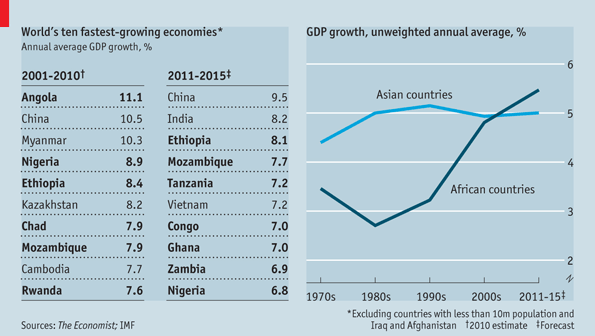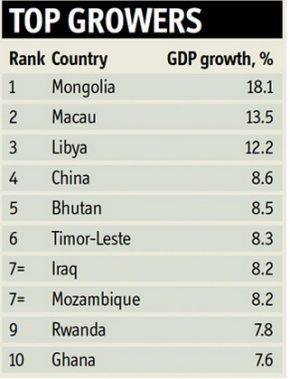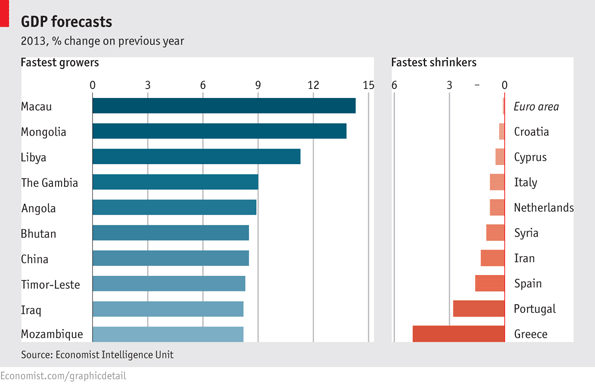mama mkunga
Member
- Aug 2, 2007
- 12
- 0
This is very great news for us Tanzanian, Tanzania is one among the fastest growing economies.
Africa's impressive growth
Africa is now one of the world's fastest-growing regions
MUCH has been written about the rise of the BRICs and Asia's impressive economic performance. But an analysis by The Economist finds that over the ten years to 2010, six of the world's ten fastest-growing economies were in sub-Saharan Africa.
On IMF forecasts Africa will grab seven of the top ten places over the next five years (our ranking excludes countries with a population of less than 10m as well as Iraq and Afghanistan, which could both rebound strongly in the years ahead).
Over the past decade the simple unweighted average of countries' growth rates was virtually identical in Africa and Asia. Over the next five years Africa is likely to take the lead. In other words, the average African economy will outpace its Asian counterpart.

source: http://www.economist.com/blogs/dailychart/2011/01/daily_chart
Africa's impressive growth
Africa is now one of the world's fastest-growing regions
MUCH has been written about the rise of the BRICs and Asia's impressive economic performance. But an analysis by The Economist finds that over the ten years to 2010, six of the world's ten fastest-growing economies were in sub-Saharan Africa.
On IMF forecasts Africa will grab seven of the top ten places over the next five years (our ranking excludes countries with a population of less than 10m as well as Iraq and Afghanistan, which could both rebound strongly in the years ahead).
Over the past decade the simple unweighted average of countries' growth rates was virtually identical in Africa and Asia. Over the next five years Africa is likely to take the lead. In other words, the average African economy will outpace its Asian counterpart.

source: http://www.economist.com/blogs/dailychart/2011/01/daily_chart


